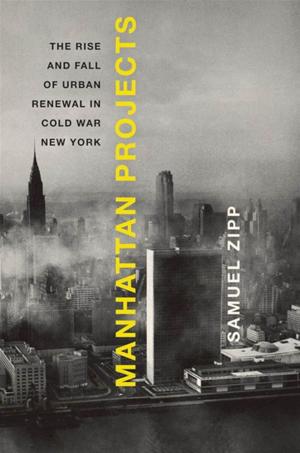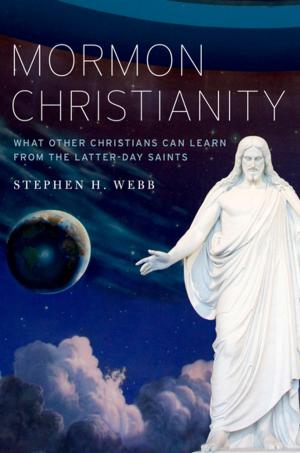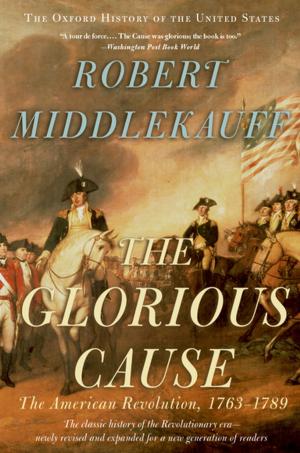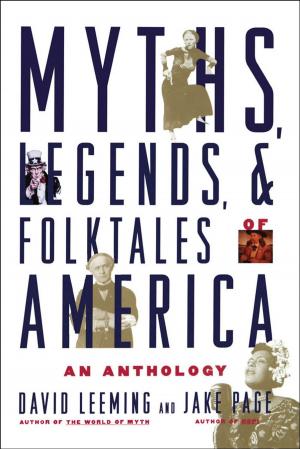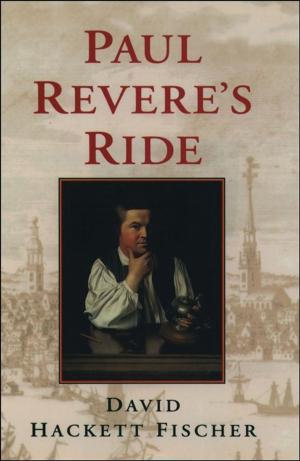| Author: | C. Vann Woodward | ISBN: | 9780199879144 |
| Publisher: | Oxford University Press, USA | Publication: | January 2, 1992 |
| Imprint: | Oxford University Press, USA | Language: | English |
| Author: | C. Vann Woodward |
| ISBN: | 9780199879144 |
| Publisher: | Oxford University Press, USA |
| Publication: | January 2, 1992 |
| Imprint: | Oxford University Press, USA |
| Language: | English |
No history of the European imagination and no understanding of America's meaning would be complete without a record of the ideas fantasies and misconceptions the Old World has formed about the New. Europe's fascination with America forms a contradictory pattern of hopes and fears dreams and nightmares yearnings and forebodings. America and Americans--according to one of their more indulgent European critics--have long been considered "a fairlyland of happy lunatics and lovable monsters." In The Old World's New World award-winning historian C. Vann Woodward has written a brilliant study of how Europeans have seen and discussed America over the last two centuries. Woodward shows how the character and the image of America in European writings often depended more upon Old World politics and ideology than upon New World realities. America has been seen both as human happiness resulting from the elimination of monarchy aristocracy and priesthood and as social chaos and human misery caused by their removal. It was proof that democracy was the best form of government or that mankind was incapable of self government. America was regularly used both as an inspiration for revolutionaries and as a stern warning against radicals of all kinds. Americans have been seen as uniformly materialistic hot in pursuit of dollars: "Such unity of purpose" wrote Mrs. Trollope "can I believe be found nowhere else except perhaps in an ants' nest." And they have been admired for their industry--one young Russian Communist visited New York in 1925 and wrote that America is "where the 'future' at least in terms of industrialization is being realized." Decade after decade America has been hailed for its youth and lambasted for its immaturity. It has been looked to as a model of liberty and attacked for maintaining the tyranny of the majority. But always it has been a metaphor for the possibilities of human society--possibilities both bright and foreboding. After a year of heady talk of a "New World Order" of American victory in the Cold War of a new American Century The Old World's New World provides a thoughtful and sobering perspective on how America has been seen in centuries past. C. Vann Woodward is one of America's foremost living historians. His books have won every major history award--including the Pulitzer Bancroft and Parkman prizes--and he has served as president of the American Historical Association as well as the Organization of American Historians and the Southern Historical Association. With this new book he further enhances his reputation while making his vast learning accessible to a general audience.
No history of the European imagination and no understanding of America's meaning would be complete without a record of the ideas fantasies and misconceptions the Old World has formed about the New. Europe's fascination with America forms a contradictory pattern of hopes and fears dreams and nightmares yearnings and forebodings. America and Americans--according to one of their more indulgent European critics--have long been considered "a fairlyland of happy lunatics and lovable monsters." In The Old World's New World award-winning historian C. Vann Woodward has written a brilliant study of how Europeans have seen and discussed America over the last two centuries. Woodward shows how the character and the image of America in European writings often depended more upon Old World politics and ideology than upon New World realities. America has been seen both as human happiness resulting from the elimination of monarchy aristocracy and priesthood and as social chaos and human misery caused by their removal. It was proof that democracy was the best form of government or that mankind was incapable of self government. America was regularly used both as an inspiration for revolutionaries and as a stern warning against radicals of all kinds. Americans have been seen as uniformly materialistic hot in pursuit of dollars: "Such unity of purpose" wrote Mrs. Trollope "can I believe be found nowhere else except perhaps in an ants' nest." And they have been admired for their industry--one young Russian Communist visited New York in 1925 and wrote that America is "where the 'future' at least in terms of industrialization is being realized." Decade after decade America has been hailed for its youth and lambasted for its immaturity. It has been looked to as a model of liberty and attacked for maintaining the tyranny of the majority. But always it has been a metaphor for the possibilities of human society--possibilities both bright and foreboding. After a year of heady talk of a "New World Order" of American victory in the Cold War of a new American Century The Old World's New World provides a thoughtful and sobering perspective on how America has been seen in centuries past. C. Vann Woodward is one of America's foremost living historians. His books have won every major history award--including the Pulitzer Bancroft and Parkman prizes--and he has served as president of the American Historical Association as well as the Organization of American Historians and the Southern Historical Association. With this new book he further enhances his reputation while making his vast learning accessible to a general audience.





